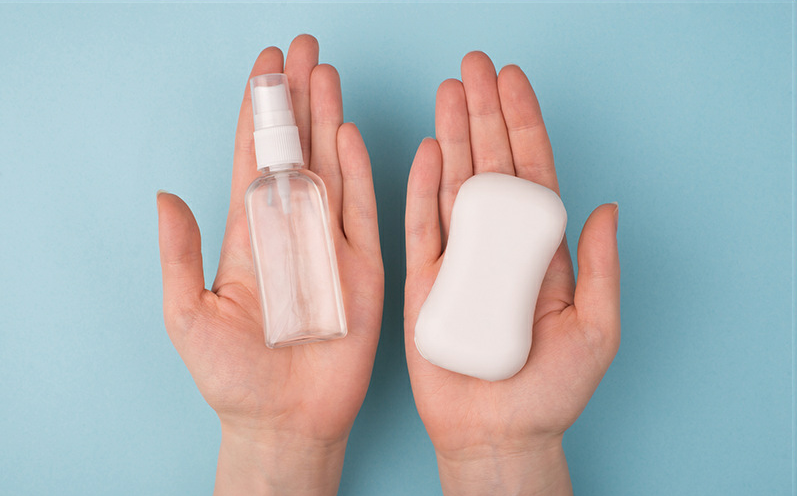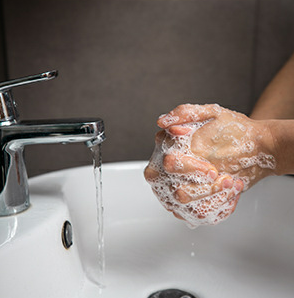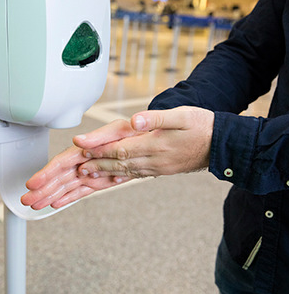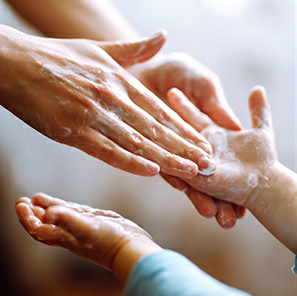Soap and Water vs. Hand Sanitizer – Which is Better?

Germs are everywhere, so whatever we touch is bound to make its way on to our hands. Clean hands are one of the best ways to prevent infection and further spread of harmful germs. But which is best: handwashing or hand sanitizer?
The Benefits of Handwashing with Soap and Water

Just plain soap will do the job if you don't have antibacterial soap on hand. In fact, antibacterial soap carries no special benefits when compared to plain soap, according to the CDC. Finally, studies have shown that soap and water is much better than its counterpart at removing certain germs, including Clostridium difficile (aka C. Diff), a life-threatening germ that can damage the colon and even lead to death.
Other Soap Pros:
- Soap can be used for multi-purposes
- Any plain soap will do
- Soap may be easier to locate in a pinch
- As long as it still lathers, soap is still effective, so you can stock up without worry of expiration
The Benefits of Hand Sanitizer

- The sanitizer you use must contain at least 60 percent alcohol
- You must use enough sanitizer to cover the entire surface of your hands
- You'll need to rub your hands together until they're dry
Another curious fact about hand sanitizer? It's regulated by the FDA, giving it an expiration date of approximately three years. As the alcohol content evaporates, so does the effectiveness. For this reason, smaller bottles may be better, as they help ensure quicker use.
The Winner
Though handwashing takes a bit more time, we hand the award to soap and water for removing germs and other muck that our hands tend to collect throughout the day.
Remember: you don't need a certain temperature for washing with soap and water to work – though do avoid directly touching faucets and door handles by using a paper towel. Hand sanitizer is a better alternative to unwashed hands if a sink and soap just aren't available at the moment. There's a strong chance you're still removing many potentially harmful germs!
When to Clean Your Hands
-
- Before and after eating
- After coughing, sneezing, or blowing your nose
- After using a tissue
- After caring for a sick loved one
- After handling garbage
- After touching or changing a dressing or bandage
- After touching any object or surface that may be contaminated
- After touching an animal, cleaning up after a pet, or preparing food for pets
